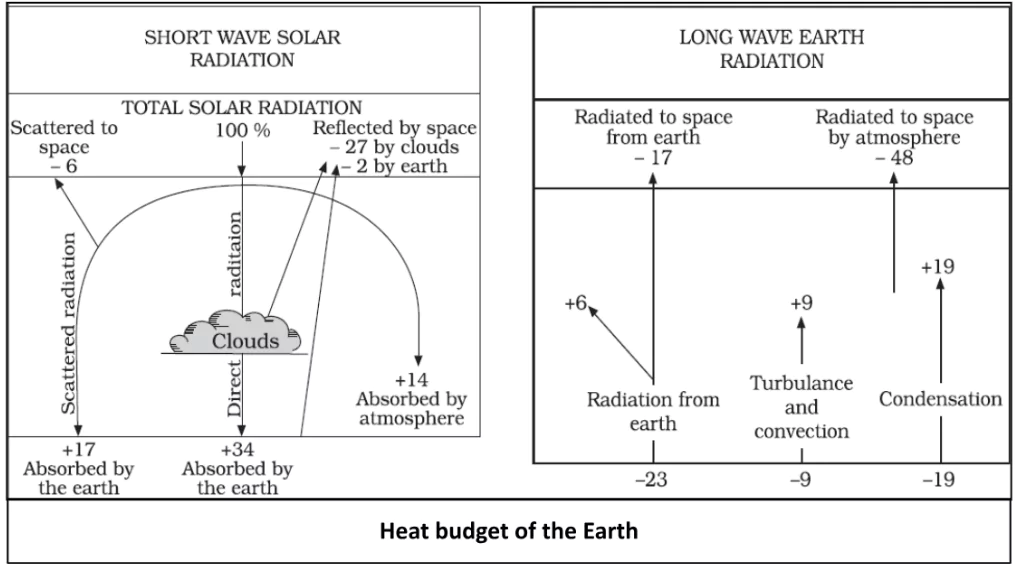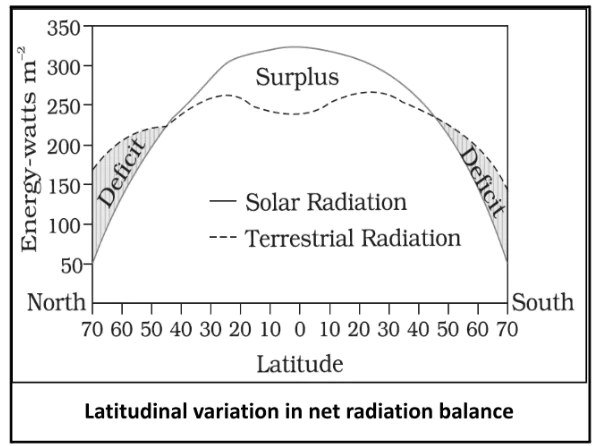![]() April 29, 2024
April 29, 2024
![]() 9292
9292
![]() 0
0
The global heat budget illustrates the equilibrium between incoming solar radiation and outgoing terrestrial radiation. This balance is crucial for maintaining the earth’s temperature. Various factors, such as absorption patterns and heat redistribution mechanisms, play key roles in this delicate balance.
Albedo
|


| Must Read | |
| Current Affairs | Editorial Analysis |
| Upsc Notes | Upsc Blogs |
| NCERT Notes | Free Main Answer Writing |
Earth’s heat budget is vital for maintaining its temperature balance. Incoming solar radiation and outgoing terrestrial radiation create this equilibrium, with various factors like absorption patterns and heat redistribution mechanisms contributing to it. Understanding this balance helps us comprehend global climate patterns and phenomena like the Urban Heat Island Effect, highlighting the interconnectedness of Earth’s systems in regulating temperature.
<div class="new-fform">
</div>

Latest Comments